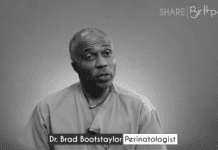TRANSCRIPT TO ANSWER
Yeah, I mean I’ll tell you what amniotic fluid looks like. It looks like it’s a fluid situation, meaning that sometimes it’s high, sometimes it’s low. If there’s a dehydrated mother, you can have low amniotic fluid because she’s holding onto fluid. If you have a mother that is over saturated, if you will, the food can be very high, so it is fluid and in more ways than one, but that said, sometimes near term or points in the pregnancy, the amniotic fluid can be low, but you can change that by hydrating the mother. You’re going to encourage her to drink fluids over a short period of time and repeat the observation because usually done by ultrasound to see if there’s been a change in the fluid volume or the index. So when we see mothers who have low amniotic fluid and the ad or near term, we don’t immediately jump to, we need to view that as a sign of the pregnancy being compromised. We more so look at it as it as a process in which the body’s maybe holding onto fluid. It’s dynamic, now, how do we change that and what we do is encourage the mother to hydrate herself, drink 64 80 ounces of fluid over 24 hours and have them come back and repeat the assessment. If the fluid continues to be low, the mother can see that it is low and she’s done some things to mitigate that and that can allow her to necessarily surrender to an induction because she’s done some things to try to change that environment. It is difficult to be told on first blush you fluid is low. We now need an induction because the mother typically in that scenario thing, she’s done something wrong and I need to have the baby today and the things I’ve done wrong or compromising my baby in that induction. It’s usually arduous in those series of things that I mentioned before, cervical ripening, discomfort, control, those kinds of things, so food is dynamic. It feedbacks into the mother if you will, but it’s nice to know whether she’s taking enough food enough. When you see it, you can actually do some things about it.








